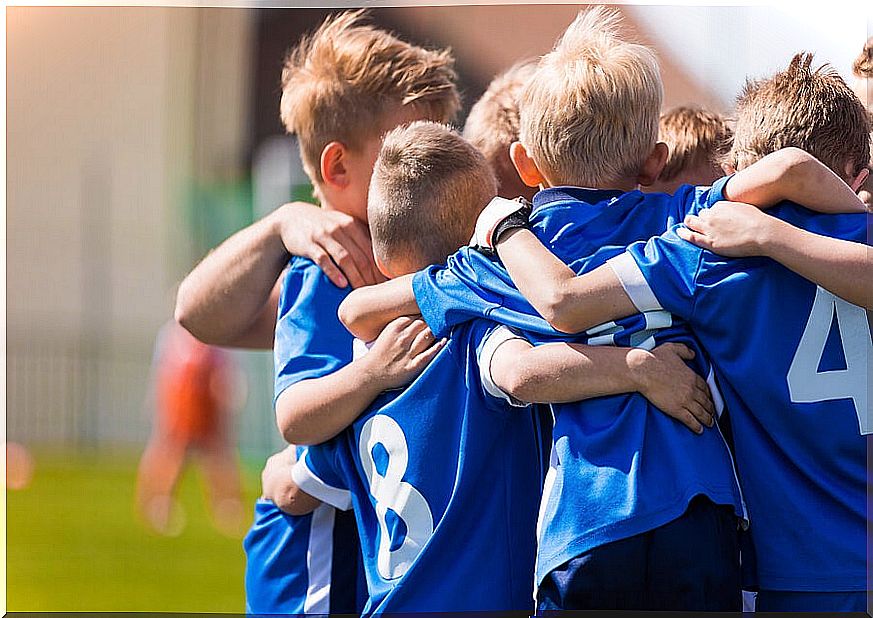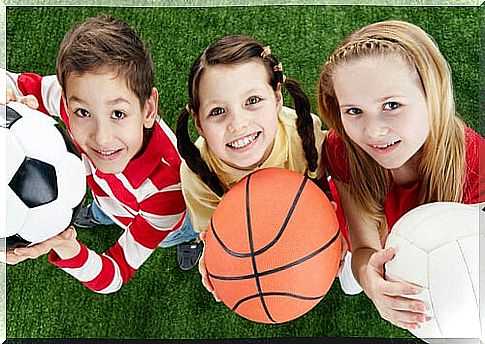Relationship Between Sport And Self-esteem

The close relationship that exists between sport and self-esteem helps the individual physically and mentally with regard to character, discipline and responsibility, in addition to the goals that he has set himself to achieve. This symbiosis helps us focus more strongly on the really important tasks and relationships.
Sport represents an option not only for the preservation of health, but for the maintenance and prolongation of physical and mental youth. This means that it strengthens self-esteem from childhood, in adolescence and, finally, during adulthood.
Sport and self-esteem go hand in hand. The first encourages the scope of achievements and observable advances in capabilities in a given discipline. On the other hand, the acceptance and recognition of these successes by the family, a loved one or the peer group promotes self-confidence in the individual.
Failure to build self-esteem
It is important to know that failures in certain circumstances are not final defeats. That our children understand that when playing sports there are many of these situations, but that they should not give up, it is essential. On the contrary, these setbacks tell us that we should try harder to get what we want.
Valuable lessons are learned from failures that help us avoid mistakes in the future. Consequently, the concept that we have of ourselves is strengthened; This, in turn, is complemented by variables such as physical appearance, behavior towards others and the feedback we receive from the environment.
However, what is really important is how we feel about ourselves and how happy we are in the activities we do. Therefore, it is essential to let children practice the sport they like the most and not the one their parents decide.

Self-esteem and sport, allies in strengthening the individual
One way to reinforce children’s self-esteem is through the practice of the sport of their choice. In doing so, it is convenient to set objectives in the short, medium and long term; These goals must be well defined so that, when achieved, they increase self-confidence.
Some objectives may be: consistently attend scheduled training with discipline and perseverance, handle a technique to perfection within a month, start in different competitions, improve performance, among others.
Only guys who feel good about themselves, despite being aware of their flaws, are confident enough to approach other people because they want their company and share with them and not to assert themselves as individuals. When they do not have sufficient self-esteem, infants are easily suggested to do anything to be accepted in a certain group.
Sports contributions to self-esteem
The benefits that the practice of sport offers for the physical and mental health of any person are many. Among them, we can list:
- It offers the possibility of improving your external image: this exponentially raises self-esteem.
- Improves health: Because of this, the mood changes positively in the individual.
- It is an intense injection of energy, vitality and dynamism: Consequently, the perception that one has towards oneself increases radically.
- It produces the release of endorphins, the so-called happiness hormones: Therefore, the possibility of falling into a depressive picture decreases.

- Encourages social interaction: In most cases, when you practice sports you are surrounded by other people, which is why sociability is enhanced in the individual.
- Raise personal safety and balance the mind: The reason is that quality time is spent exercising.
Any sporting activity will be in favor of the physical and mental health of our children; therefore, it will generate positive contributions to self-esteem. Sociability and character are reinforced in these practices, in addition to core values such as respect for others, responsibility, and discipline.
A young man who is happy for what he does, who consistently observes his achievements and receives recognition from his family and friends, will be an adult with a forged character and indelible self-esteem. Thanks to this, you will have no doubts or fears in posing new challenges that test your capabilities.










